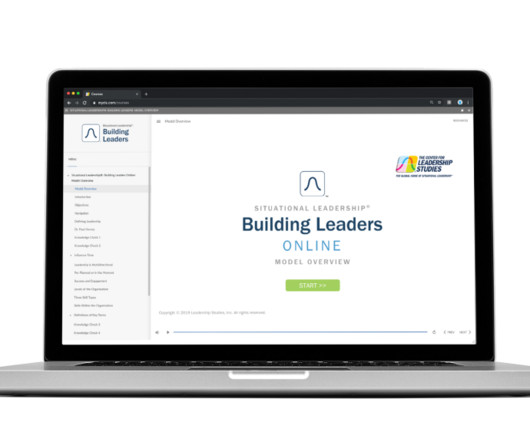The History of the Situational Leadership® Framework
The Center For Leadership Studies
JUNE 8, 2023
The Situational Leadership ® framework was the product of over 50 years of pioneering research in leadership development and organizational behavior. Studies of human motivation, professional growth and development were investigated on a separate track. Did the team or group the manager led hit their productivity targets?













Let's personalize your content